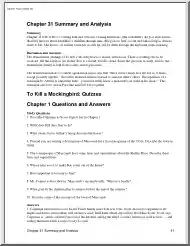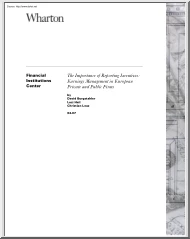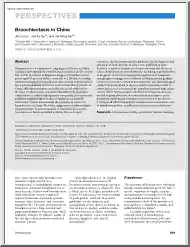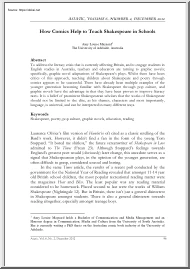A doksi online olvasásához kérlek jelentkezz be!
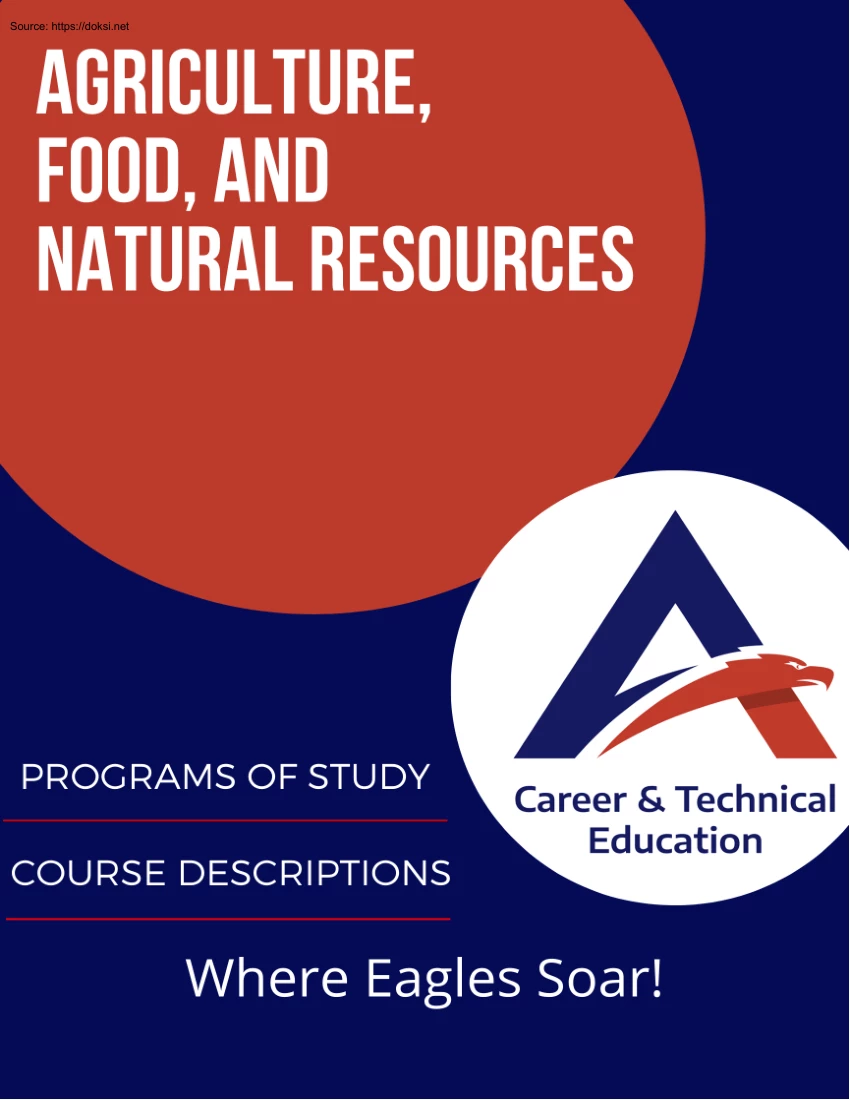
A doksi online olvasásához kérlek jelentkezz be!
Nincs még értékelés. Legyél Te az első!
Mit olvastak a többiek, ha ezzel végeztek?
Tartalmi kivonat
9th Grade 9th Grade 9th Grade Principles of Agriculture, Food and Natural Resources Principles of Agriculture, Food and Natural Resources Principles of Agriculture, Food and Natural Resources 10th Grade 10th Grade 10th Grade Floral Design (1) Agricultural & Metal Technologies (1) 11th Grade 11th Grade 11th Grade Veterinary Medical Practicum in Ag-Floral Design I (2) Agricultural Structures Design & Fabrication (1) 12th Grade Practicum in Ag- Floral Design II (2) 12th Grade Practicum in Agricultural Mechanics (2) Texas State Floral Association Floral Skills Knowledge AWS Welding Livestock Production (1) or Equine Science (.5) and Small Animal Management (.5) Application (1) 12th Grade Practicum in Ag- Veterinary Medicine (2) Animal Systems T he Animal Systems program of study focuses on the science, research and business of animals and other living organisms. It teaches students how to apply biology and life science to real-world life processes of
animals and wildlife, ether in laboratories or in the field, which could include a veterinary office a farm or ranch, or any outdoor area harboring animal life. Students may also analyze the growth and destruction of species and research or diagnose diseases and injuries of animals. Principles of Agriculture, Food and Natural Resources This course allows students to develop knowledge and skills regarding career opportunities, personal development, globalization, industry standards details, practices, and expectations. To prepare for success, students need to have opportunities to learn, reinforce experience, apply, and transfer their knowledge and skills in a variety of settings. Students will be required to complete and maintain s Supervised Agricultural Experience (SAE). Livestock Production This course allows students the experience needed to attain academic skills and knowledge, acquire knowledge and skills related to animal systems and the workplace, and develop knowledge and
skills regarding career opportunities, entry requirements, and industry expectations. To prepare for success, students need opportunities to learn, reinforce, apply, and transfer their knowledge and skills in a variety of settings. Animal species to be addressed in this course may include, but are not limited to, beef cattle, dairy cattle, equine, swine, sheep, goats, and poultry. Students will be required to complete and maintain a Supervised Agricultural Experience (SAE). Equine Science This course allows students to acquire knowledge and skills related to equine animal systems and the equine industry. Equine Science may address topics related to horses, donkeys, and mules. To prepare for careers in the field of animal science, students must enhance academic knowledge and skills, acquire knowledge and skills related to animal systems, and develop knowledge and skills regarding career opportunities, entry requirements, and industry expectations. To prepare for success, students need
opportunities to learn, reinforce, apply, and transfer their knowledge and skills in a variety of settings. Equine Science (5 credit) taken with small animal management (.5 credits) in a given year, will satisfy the required prerequisite for Veterinary Medical Applications. Students will be required to complete and maintain a Supervised Agricultural Experience (SAE) Does NOT count as science credit Animal Systems Small Animal Management This course allows students the experience needed to enhance academic knowledge and skills, acquire knowledge and skills related to animal systems, and develop knowledge and skills regarding career opportunities, entry requirements, and industry expectations. To prepare for success, students need opportunities to learn, reinforce, apply, and transfer knowledge and skills in a variety of settings. Suggested small animals which may be included in the course of study include, but are not limited to, small mammals, amphibians, reptiles, avian, dogs, and
cats. Students will be required to complete and maintain a Supervised Agricultural Experience (SAE). Veterinary Medical Applications This course will give students the experience needed to attain academic and technical knowledge and skills related to animal systems and the workplace, and develop knowledge and skills regarding career opportunities, entry requirements, and industry expectations. To prepare for success, students need opportunities to learn, reinforce, apply, and transfer knowledge and skills and technologies in a variety of settings. Topics covered in this course include, but are not limited to, veterinary practices as they relate to both large and small animal species. Students may obtain Veterinary Assistant Certification by completing the required shadow hours under the supervision of a veterinarian. Students will be required to complete and maintain a Supervised Agricultural Experience (SAE). GPA Weight: 4.5 Animal Systems Practicum in AG – Veterinary Medicine
The practicum course is a paid or unpaid capstone experience for students participating in a coherent sequence of career and technical education courses in the Agriculture, Food, and Natural Resources cluster. The practicum is designed to give students supervised practical application of knowledge and skills. Practicum experiences can occur in a variety of locations appropriate to the nature and level of experiences such as employment, independent study, internships, assistantships, mentorships, or laboratories. Students must provide their own transportation to and from their field site. Students will be required to complete and maintain a Supervised Agricultural Experience (SAE). Students will obtain level 1 certification with required 300 hours at a Vet clinic. Students who have already tested previously for level 1 will be required to shadow or work for at least 1,000 hours towards their level 2 Certified Veterinary Assistant certification in the year and pay a test fee of $135. GPA
Weight: 45 Advanced Animal Science This course will give students the experience needed to attain academic skills and knowledge, acquire knowledge and skills related to animal systems, and develop knowledge and skills regarding career opportunities, entry requirements, and industry standards. To prepare for success, students need opportunities to learn, reinforce, apply, and transfer their knowledge and skills in a variety of settings. This course examines the interrelatedness of human, scientific, and technological dimensions of livestock production. Instruction is designed to allow for the application of scientific and technological aspects of animal science through field and laboratory experiences. This course examines the nature of science, scientific inquiry, science and social ethics and science-systems and models. Students will be required to complete and maintain a Supervised Agricultural Experience (SAE). Prerequisites: Biology and Chemistry or Integrated Physics and
Chemistry (IPC); Algebra I and Geometry; and either Small Animal Management, Equine Science, or Livestock Production. Available to: 12 Grade Students This course counts as a 4th year science 1 Credit Plant Science T he Plant Science program if study focuses on the science, research, and business of plants and other living organisms. It teaches students how to apply biology and life science to real-world life processes of plants and vegetation, either in laboratories or in the field. Principles of Agriculture, Food and Natural Resources This course allows students to develop knowledge and skills regarding career opportunities, personal development, globalization, industry standards details, practices, and expectations. To prepare for success, students need to have opportunities to learn, reinforce experience, apply, and transfer their knowledge and skills in a variety of settings. Students will be required to complete and maintain s Supervised Agricultural Experience (SAE).
Floral Design This course allows students the experience needed to attain academic skills and knowledge as well as technical knowledge and skills related to horticultural systems and develop knowledge and skills regarding career opportunities, entry requirements, and industry expectations. To prepare for success, students need opportunities to learn, reinforce, apply and transfer their knowledge and skills and technologies in a variety of settings. This course is designed to develop students' ability to identify and demonstrate the principles and techniques related to floral design as well as develop an understanding of the management of floral enterprises. Through the analysis of artistic floral styles and historical periods, students develop respect for the traditions and contributions of diverse cultures. Students respond to and analyze floral designs, thus contributing to the development of lifelong skills of making informed judgments and evaluations. Students will be required
to complete and maintain a Supervised Agricultural Experience (SAE). Students earn Texas State Floral Association Floral Skills Knowledge Based Certification Practicum in Ag-Floral Design 1 and Ag-Floral Design 2 This course is designed to give students supervised practical application of knowledge and skills to demonstrate the principles and techniques related to floral design as well as develop an understanding of the management of floral enterprises. Practicum experiences can occur in a variety of locations appropriate to the nature and level of experiences such as employment, independent study, internships, assistantships, mentorships, or laboratories. To prepare for careers in agriculture, food and natural resources, students must attain academic skills and knowledge, acquire technical knowledge and skills related to the workplace, and develop knowledge and skills regarding career opportunities, entry requirements, and industry expectations. To prepare for success, students need
opportunities to learn, reinforce, apply, and transfer their knowledge and skills and technologies in a variety of settings. Students are encouraged to participate in extended learning experiences such as career and technical student organizations and other leadership or extracurricular organizations. Students must provide their own transportation to and from their field sites. GPA Weight: 4.5 Students will be required to complete and maintain a Supervised Agricultural Experience (SAE). Applied Agricultural Engineering T he Applied Agricultural Engineering program of study explores the occupations of educational opportunities associated with applying knowledge of engineering technology and biological science to agricultural problems concerned with power and machinery, electrification, structures, soil and water conservation, and processing agricultural products. This program of study may also include exploration into diagnosing, repairing, or overhauling farm machinery and
vehicles, such as tractors, harvesters, dairy equipment, and irrigation. Principles of Agriculture, Food and Natural Resources This course allows students to develop knowledge and skills regarding career opportunities, personal development, globalization, industry standards details, practices, and expectations. To prepare for success, students need to have opportunities to learn, reinforce experience, apply, and transfer their knowledge and skills in a variety of settings. Students will be required to complete and maintain s Supervised Agricultural Experience (SAE). Agricultural Mechanics & Metal Technologies This course is designed to develop an understanding of agricultural mechanics as it relates to safety and skills in tool operation, electrical wiring, plumbing, carpentry, fencing, concrete, and metal working techniques. To be prepared for careers in agricultural power, structural, and technical systems, students need to attain academic skills and knowledge; acquire
technical knowledge and skills related to power, structural, and technical agricultural systems and the industry; and develop knowledge and skills regarding career opportunities, entry requirements, industry certifications, and industry expectations. To prepare for success, students need opportunities to learn, reinforce, apply, and transfer knowledge and skills and technologies in a variety of settings. Students will be required to complete and maintain a Supervised Agricultural Experience (SAE). Students are required to wear cotton clothing and closed toed shoes, for safety. Students earn AWS Welding certification Applied Agricultural Engineering Agriculture Structures Design & Fabrication This course is designed to prepare students for careers in mechanized agriculture and technical systems, students attain knowledge and skills related to agricultural facilities design and fabrication. Students explore career opportunities, entry requirements, and industry expectations. To
prepare for success, students reinforce, apply, and transfer their academic knowledge and technical skills in a variety of settings. Students will be required to complete and maintain a Supervised Agricultural Experience (SAE). Students earn AWS Welding certification. Practicum Agricultural Mechanics The practicum course is a paid or unpaid capstone experience for students participating in a coherent sequence of career and technical education courses in the Agriculture, Food, and Natural Resources cluster. The practicum is designed to give students supervised practical application of knowledge and skills. Practicum experiences can occur in a variety of locations appropriate to the nature and level of experiences such as employment, independent study, internships, assistantships, mentorships, or laboratories. Students must provide their own transportation to and from their field sites. Students will be required to complete and maintain a Supervised Agricultural Experience (SAE).
Students earn AWS Welding certification
animals and wildlife, ether in laboratories or in the field, which could include a veterinary office a farm or ranch, or any outdoor area harboring animal life. Students may also analyze the growth and destruction of species and research or diagnose diseases and injuries of animals. Principles of Agriculture, Food and Natural Resources This course allows students to develop knowledge and skills regarding career opportunities, personal development, globalization, industry standards details, practices, and expectations. To prepare for success, students need to have opportunities to learn, reinforce experience, apply, and transfer their knowledge and skills in a variety of settings. Students will be required to complete and maintain s Supervised Agricultural Experience (SAE). Livestock Production This course allows students the experience needed to attain academic skills and knowledge, acquire knowledge and skills related to animal systems and the workplace, and develop knowledge and
skills regarding career opportunities, entry requirements, and industry expectations. To prepare for success, students need opportunities to learn, reinforce, apply, and transfer their knowledge and skills in a variety of settings. Animal species to be addressed in this course may include, but are not limited to, beef cattle, dairy cattle, equine, swine, sheep, goats, and poultry. Students will be required to complete and maintain a Supervised Agricultural Experience (SAE). Equine Science This course allows students to acquire knowledge and skills related to equine animal systems and the equine industry. Equine Science may address topics related to horses, donkeys, and mules. To prepare for careers in the field of animal science, students must enhance academic knowledge and skills, acquire knowledge and skills related to animal systems, and develop knowledge and skills regarding career opportunities, entry requirements, and industry expectations. To prepare for success, students need
opportunities to learn, reinforce, apply, and transfer their knowledge and skills in a variety of settings. Equine Science (5 credit) taken with small animal management (.5 credits) in a given year, will satisfy the required prerequisite for Veterinary Medical Applications. Students will be required to complete and maintain a Supervised Agricultural Experience (SAE) Does NOT count as science credit Animal Systems Small Animal Management This course allows students the experience needed to enhance academic knowledge and skills, acquire knowledge and skills related to animal systems, and develop knowledge and skills regarding career opportunities, entry requirements, and industry expectations. To prepare for success, students need opportunities to learn, reinforce, apply, and transfer knowledge and skills in a variety of settings. Suggested small animals which may be included in the course of study include, but are not limited to, small mammals, amphibians, reptiles, avian, dogs, and
cats. Students will be required to complete and maintain a Supervised Agricultural Experience (SAE). Veterinary Medical Applications This course will give students the experience needed to attain academic and technical knowledge and skills related to animal systems and the workplace, and develop knowledge and skills regarding career opportunities, entry requirements, and industry expectations. To prepare for success, students need opportunities to learn, reinforce, apply, and transfer knowledge and skills and technologies in a variety of settings. Topics covered in this course include, but are not limited to, veterinary practices as they relate to both large and small animal species. Students may obtain Veterinary Assistant Certification by completing the required shadow hours under the supervision of a veterinarian. Students will be required to complete and maintain a Supervised Agricultural Experience (SAE). GPA Weight: 4.5 Animal Systems Practicum in AG – Veterinary Medicine
The practicum course is a paid or unpaid capstone experience for students participating in a coherent sequence of career and technical education courses in the Agriculture, Food, and Natural Resources cluster. The practicum is designed to give students supervised practical application of knowledge and skills. Practicum experiences can occur in a variety of locations appropriate to the nature and level of experiences such as employment, independent study, internships, assistantships, mentorships, or laboratories. Students must provide their own transportation to and from their field site. Students will be required to complete and maintain a Supervised Agricultural Experience (SAE). Students will obtain level 1 certification with required 300 hours at a Vet clinic. Students who have already tested previously for level 1 will be required to shadow or work for at least 1,000 hours towards their level 2 Certified Veterinary Assistant certification in the year and pay a test fee of $135. GPA
Weight: 45 Advanced Animal Science This course will give students the experience needed to attain academic skills and knowledge, acquire knowledge and skills related to animal systems, and develop knowledge and skills regarding career opportunities, entry requirements, and industry standards. To prepare for success, students need opportunities to learn, reinforce, apply, and transfer their knowledge and skills in a variety of settings. This course examines the interrelatedness of human, scientific, and technological dimensions of livestock production. Instruction is designed to allow for the application of scientific and technological aspects of animal science through field and laboratory experiences. This course examines the nature of science, scientific inquiry, science and social ethics and science-systems and models. Students will be required to complete and maintain a Supervised Agricultural Experience (SAE). Prerequisites: Biology and Chemistry or Integrated Physics and
Chemistry (IPC); Algebra I and Geometry; and either Small Animal Management, Equine Science, or Livestock Production. Available to: 12 Grade Students This course counts as a 4th year science 1 Credit Plant Science T he Plant Science program if study focuses on the science, research, and business of plants and other living organisms. It teaches students how to apply biology and life science to real-world life processes of plants and vegetation, either in laboratories or in the field. Principles of Agriculture, Food and Natural Resources This course allows students to develop knowledge and skills regarding career opportunities, personal development, globalization, industry standards details, practices, and expectations. To prepare for success, students need to have opportunities to learn, reinforce experience, apply, and transfer their knowledge and skills in a variety of settings. Students will be required to complete and maintain s Supervised Agricultural Experience (SAE).
Floral Design This course allows students the experience needed to attain academic skills and knowledge as well as technical knowledge and skills related to horticultural systems and develop knowledge and skills regarding career opportunities, entry requirements, and industry expectations. To prepare for success, students need opportunities to learn, reinforce, apply and transfer their knowledge and skills and technologies in a variety of settings. This course is designed to develop students' ability to identify and demonstrate the principles and techniques related to floral design as well as develop an understanding of the management of floral enterprises. Through the analysis of artistic floral styles and historical periods, students develop respect for the traditions and contributions of diverse cultures. Students respond to and analyze floral designs, thus contributing to the development of lifelong skills of making informed judgments and evaluations. Students will be required
to complete and maintain a Supervised Agricultural Experience (SAE). Students earn Texas State Floral Association Floral Skills Knowledge Based Certification Practicum in Ag-Floral Design 1 and Ag-Floral Design 2 This course is designed to give students supervised practical application of knowledge and skills to demonstrate the principles and techniques related to floral design as well as develop an understanding of the management of floral enterprises. Practicum experiences can occur in a variety of locations appropriate to the nature and level of experiences such as employment, independent study, internships, assistantships, mentorships, or laboratories. To prepare for careers in agriculture, food and natural resources, students must attain academic skills and knowledge, acquire technical knowledge and skills related to the workplace, and develop knowledge and skills regarding career opportunities, entry requirements, and industry expectations. To prepare for success, students need
opportunities to learn, reinforce, apply, and transfer their knowledge and skills and technologies in a variety of settings. Students are encouraged to participate in extended learning experiences such as career and technical student organizations and other leadership or extracurricular organizations. Students must provide their own transportation to and from their field sites. GPA Weight: 4.5 Students will be required to complete and maintain a Supervised Agricultural Experience (SAE). Applied Agricultural Engineering T he Applied Agricultural Engineering program of study explores the occupations of educational opportunities associated with applying knowledge of engineering technology and biological science to agricultural problems concerned with power and machinery, electrification, structures, soil and water conservation, and processing agricultural products. This program of study may also include exploration into diagnosing, repairing, or overhauling farm machinery and
vehicles, such as tractors, harvesters, dairy equipment, and irrigation. Principles of Agriculture, Food and Natural Resources This course allows students to develop knowledge and skills regarding career opportunities, personal development, globalization, industry standards details, practices, and expectations. To prepare for success, students need to have opportunities to learn, reinforce experience, apply, and transfer their knowledge and skills in a variety of settings. Students will be required to complete and maintain s Supervised Agricultural Experience (SAE). Agricultural Mechanics & Metal Technologies This course is designed to develop an understanding of agricultural mechanics as it relates to safety and skills in tool operation, electrical wiring, plumbing, carpentry, fencing, concrete, and metal working techniques. To be prepared for careers in agricultural power, structural, and technical systems, students need to attain academic skills and knowledge; acquire
technical knowledge and skills related to power, structural, and technical agricultural systems and the industry; and develop knowledge and skills regarding career opportunities, entry requirements, industry certifications, and industry expectations. To prepare for success, students need opportunities to learn, reinforce, apply, and transfer knowledge and skills and technologies in a variety of settings. Students will be required to complete and maintain a Supervised Agricultural Experience (SAE). Students are required to wear cotton clothing and closed toed shoes, for safety. Students earn AWS Welding certification Applied Agricultural Engineering Agriculture Structures Design & Fabrication This course is designed to prepare students for careers in mechanized agriculture and technical systems, students attain knowledge and skills related to agricultural facilities design and fabrication. Students explore career opportunities, entry requirements, and industry expectations. To
prepare for success, students reinforce, apply, and transfer their academic knowledge and technical skills in a variety of settings. Students will be required to complete and maintain a Supervised Agricultural Experience (SAE). Students earn AWS Welding certification. Practicum Agricultural Mechanics The practicum course is a paid or unpaid capstone experience for students participating in a coherent sequence of career and technical education courses in the Agriculture, Food, and Natural Resources cluster. The practicum is designed to give students supervised practical application of knowledge and skills. Practicum experiences can occur in a variety of locations appropriate to the nature and level of experiences such as employment, independent study, internships, assistantships, mentorships, or laboratories. Students must provide their own transportation to and from their field sites. Students will be required to complete and maintain a Supervised Agricultural Experience (SAE).
Students earn AWS Welding certification
